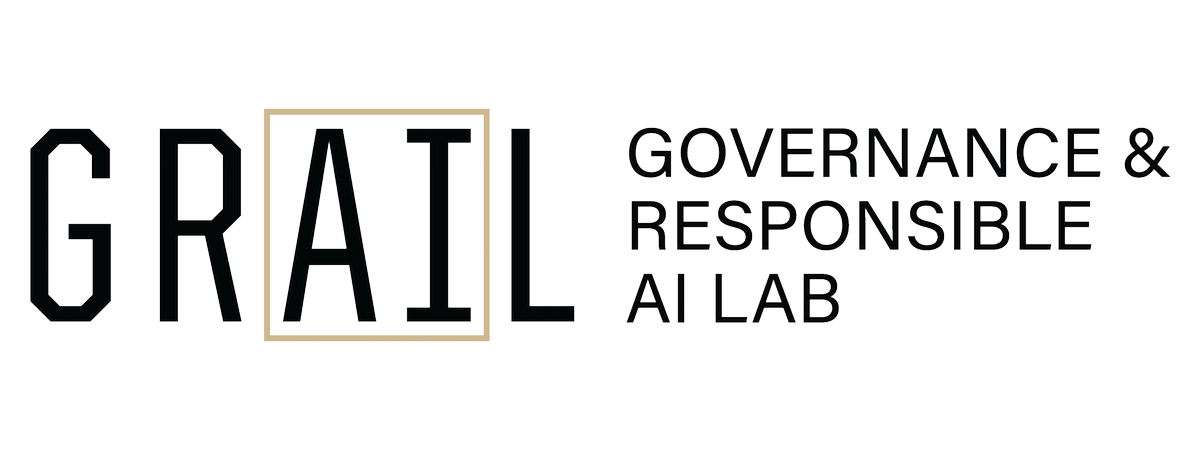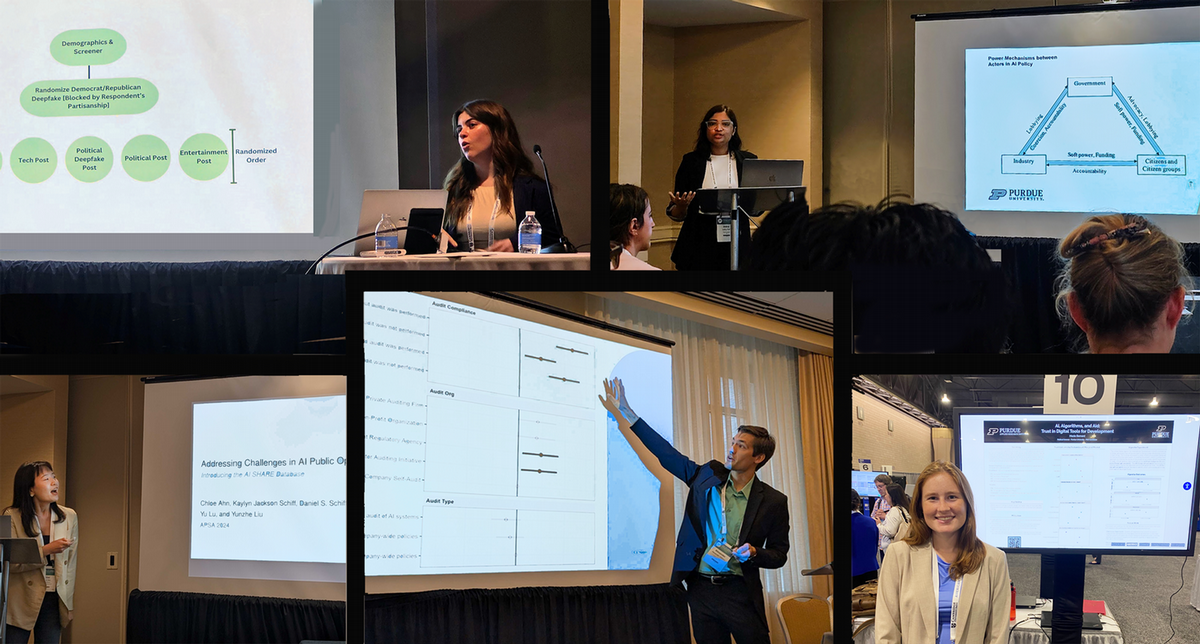
About
The Governance and Responsible AI Lab (GRAIL) supports research on the social, ethical, and governance implications of artificial intelligence and other emerging or impactful technologies. GRAIL brings together faculty, students, and partners interested in collaborative research, sharing ideas across disciplines and sectors, and producing rigorous and impactful, policy-relevant work on the topic of AI.
At GRAIL, our foundational pillars are Governance and Responsibility, in the context of AI and other emerging or impactful technologies.
- Governance is broader than public policy and politics, and refers to the collective effort to understand, regulate, or manage an issue, inclusive of efforts by policymakers, regulators, industry bodies, companies, media watchdogs, professional organizations, and civil society organizations as well as of individuals themselves.
- Responsibility refers to social, ethical, policy, and legal implications that affect individuals, communities, society, or the natural world.
- Finally, while our core focus is on AI (intelligent systems, automation, etc.) we are broadly dedicated to understanding emerging technologies or established technologies that affect the public interest and can benefit from rigorous research.
Resources:
- Overview of GRAIL progress during the 2023-24 academic year.
- GRAIL Handbook of Policies and Procedures
Media Coverage and Commentary:
- Commentary and blogposts authored by GRAIL Co-Directors
- Watch out for false claims of deepfakes, and actual deepfakes, this election year, Brookings Institution
- In shaping AI policy, stories about social impacts are just as important as expert information, The London School of Economics and Political Science
- Generative AI like ChatGPT could help boost democracy - if it overcomes key hurdles, The Conversation
- Media coverage
- Can politicians benefit from claiming real scandals are deep fakes?, CNN
- That Message From Your Doctor? It May Have Been Drafted by A.I., The New York Times
- AI didn't sway the election, but it deepend the partisan divide, The Washington Post
- AI's Fingerprints Were All Over the Election, The Atlantic
- How to Protect Yourself from AI Election Misinformation, Time
- Cry "Fake News"and Gain Support, Political Science Now
- Deepfakes, Elections, and Shrinking the Liar's Dividend, Brennan Center for Justice
- The impact of generative AI in a global election year, Brookings Institution
- Misunderstood mechanics: How AI, TikTok, and the liar's dividend might affect the 2024 elections, Brookings Institution
- Poll Finds Widespread Distrust of Social Media in US Election Cycle, Tech Policy Press
- Can you spot the deepfake? Here's what you need to know about AI and political deepfakes before you vote, WTHR
- "This will not be tolerated": Americans grapple with AI's influence on elections, News21
- Purdue profs show how deepfakes could impact 2024 presidential election, WISH-TV
- Artificial intelligence content increases as election nears, WISH-TV
- FCC joins growing chorus of officials concerned about AI use in political ads, The National Desk
